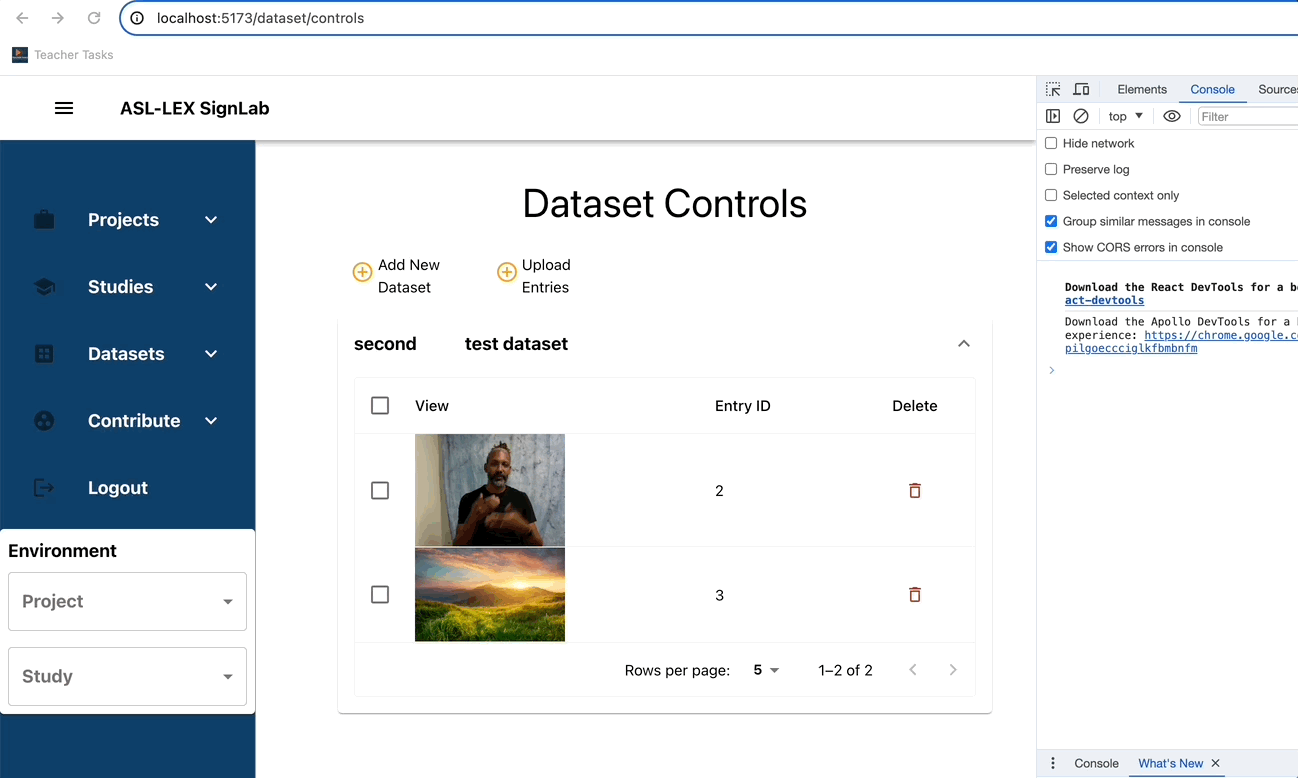Code review goals
- Teach best practices.
- Students should not only learn but also demonstrate their understanding of best software practices by delivering code that meets high standards.
- Produce quality product for clients and next batch of students.
- Spark wants continued collaboration with clients.
- Students should be able to focus on their contribution rather than fixing previous code.
What to do when reviewing a pull requests
-
Ensure pull request is complete. A complete pull request;
- Must have a clear description of feature or bug.
-
Should include a gif/video of before and after feature was added, if it introduces visual features. Eg:

- Contains code that all contributes to a single feature.
- Must not be commits behind main branch (or the branch it’s about to merge into).
- Passes all CI/CD checks.
-
Provide actionable comments. State directly what should be changed and why Egs:
-
Instead of “I am not clear on what’s going here”, you could comment “group lines 23-65 into a function “calculateCoordinatesOfScalingBox()” and move it to a utils.ts file to make your code more readable”.
-
Instead of “Your branch doesn’t seem to be up to date”, you could comment “Merge with main to get latest changes”.
-
- Run branch locally to verify functionality.
- Approve asap.
Code review checklist
-
Project structure
- Organized according to conventions of frameworks used. - Egs Nextjs
- Make use of folders. Eg folder-structure-for-modern-web-applications
- Folders and files should have a consistent naming convention.
-
Code organization
- On frontend, adhere to Atomic Design as much as possible.
- Repeated code should be made into functions.
- Files shouldn’t be too long.
- Most files should be less than 100 lines. Ideally, no file should exceed 400 lines.
- File formatting
- Code should be formatted using a formatting tool.
- Stick to prettier.
- Files should have a consistent naming convention.
- Code should be formatted using a formatting tool.
-
Git management
- Has gitignore file.
- Node_modules, env files, build folders/files (dist etc), log files etc should not be pushed to remote repo.
- ReadMe
- Changes should be reflected in README.md
- A code change that contradicts the readme, makes it obsolete or insufficient, should be accompanied by changes in readme.
- “Best time to add documentation is before implementation. Worst time is after implementation. At the very least, document during implementation.”
- Changes should be reflected in README.md
- Logging
- Errors should be logged with console.error .
- Remove all console.logs. They are not necessary in a well organized, commented, documented codebase.
-
Common code smells
- Unused imports, packages and functions should be removed.
- Long, repeated If else blocks should be replaced with a switch statement or a map.
- Magic numbers should be replaced with named constants placed at the top of a file or in a constants.ts/config.ts file, accompanied by necessary comments.
- Code blocks prone to unpredictable errors should be placed in a try catch block or handled gracefully.
- Eg are file i/o, network requests, etc
- if else should be simplified with ternary statements where possible.
if(age >= 18 ){ const message = "You are an adult"; }else{ const message = "You are not an adult yet"; } // can be replaced with const message = (age >= 18) ? "You are an adult" : "You are not an adult yet";- See here for more examples of code smells.
-
Common React pitfalls
- Elements in a list should have keys.
export const DatasetsView: React.FC<DatasetsViewProps> = ({ datasets, additionalColumns }) => { return ( <> {datasets.map((dataset: Dataset) => ( // add a key to each elements in list <Accordion key={dataset._id} disableGutters> <AccordionSummary expandIcon={<ExpandMore />}> … </AccordionSummary> </Accordion> ))} </> ); };- Custom hooks
- Code that resides in a hook (eg useState, useEffect, useCallback etc) and is repeated in multiple files should be refactored into a custom hook.
-
Nits:
- Comments should add context rather than repeat code.
- There shouldn’t be confusing spelling mistakes in variable/function names.
- Variable and function names must be concise yet descriptive enough.
function getId() {...} // ok function getUserId() {...} //better const duration = videoRef.current.duration; //ok const videoDuration = videoRef.current.duration; //better